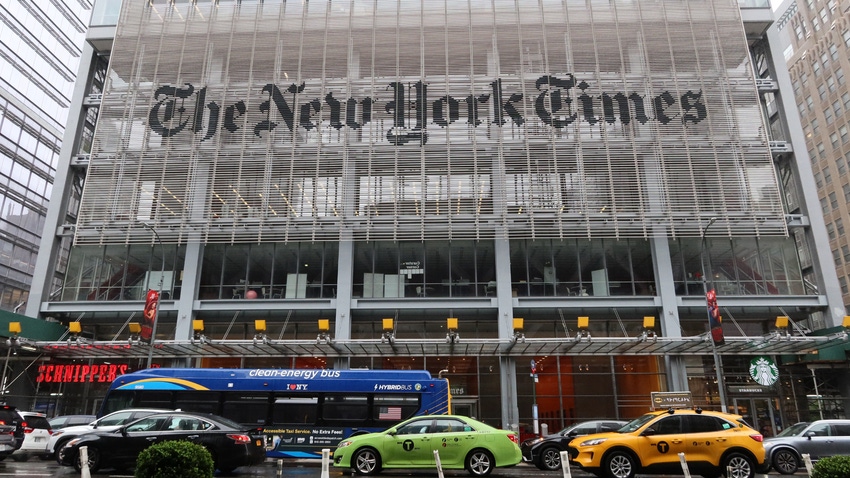OpenAI: NY Times 'Hacked' ChatGPT So It Could Sue Us
OpenAI accuses The New York Times of manipulating ChatGPT to fabricate lawsuit evidence. The paper is suing for alleged copyright infringement.

At a Glance
- OpenAI said The New York Times 'hacked' ChatGPT and manipulated it into generating copyrighted content for its lawsuit.
- OpenAI is being sued by the Times for allegedly regurgitating near-verbatim content from the paper through ChatGPT.
OpenAI is claiming that The New York Times hired someone to “hack” and exploit flaws in its products to build up evidence for its lawsuit against the ChatGPT maker.
In a New York court filing, OpenAI alleges the newspaper intentionally exploited a bug in ChatGPT to generate “highly anomalous results” in an attempt to show how the chatbot copied excerpts from its articles.
According to the motion, the Times used "deceptive prompts" engineered to feed portions of articles to ChatGPT, which the outlet claimed were copied by the chatbot.
OpenAI said that the newspaper failed to disclose what prompts or tools the individual used to instruct the chatbot, but argued that the “hired gun” took “tens of thousands” of attempts to get the chatbot to generate verbatim text from news articles
“Normal people do not use OpenAI’s products in this way,” the filing reads.
The Times claimed in a December lawsuit that ChatGPT was trained on its articles without permission, with the chatbot able to generate “near-verbatim excerpts” from its articles.
But in its attempts to prove this claim, OpenAI argued that the Times tried to “frame these undesirable phenomena as typical model behavior.”
OpenAI said the newspaper’s complaint “features a number of examples of training data regurgitation and model hallucination generated by the Times after what appears to have been prolonged and extensive efforts to hack OpenAI’s models.”
“Contrary to the allegations in the complaint, however, ChatGPT is not in any way a substitute for a subscription to The New York Times. In the real world, people do not use ChatGPT or any other OpenAI product for that purpose. Nor could they. In the ordinary course, one cannot use ChatGPT to serve up Times articles at will.”
OpenAI alleges the Times failed to disclose its findings prior to filing the lawsuit and instead “kept these results to itself, apparently to set up this lawsuit.”
These examples also were not nearly verbatim to the Times stories, as the paper alleges, but rather merely similar, OpenAI further contended. Moreover, OpenAI said the Times “made the strategic decision” to focus on older articles published between three and 12 years ago, meaning these stories have been circulating online for years.
OpenAI said the suit “poses significant questions” about the use of publicly accessible content to train AI models and the principle of fair use in copyright law.
OpenAI said in a January filing in the U.K. House of Lords that it cannot develop state-of-the-art models without access to copyrighted materials.
OpenAI CEO Sam Altman said in Davos that same month that the company does not need to train on the Times’ data. “Any one particular training source does not move the needle for us that much,” he said.
Read more about:
ChatGPT / Generative AIAbout the Author(s)
You May Also Like


.jpg?width=700&auto=webp&quality=80&disable=upscale)
.jpg?width=700&auto=webp&quality=80&disable=upscale)
.jpg?width=700&auto=webp&quality=80&disable=upscale)
.jpg?width=300&auto=webp&quality=80&disable=upscale)
.jpg?width=300&auto=webp&quality=80&disable=upscale)
.jpg?width=300&auto=webp&quality=80&disable=upscale)
.jpg?width=300&auto=webp&quality=80&disable=upscale)
.jpg?width=300&auto=webp&quality=80&disable=upscale)